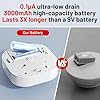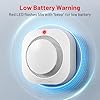If you’ve ever been to the beach, you’ve probably seen people walking around with metal detectors. But have you ever wondered why they’re using them?
Metal detectors are important because they can help find buried treasure. They can also help find lost keys and other metal objects that have been lost.
So, the next time you see someone using a metal detector, remember that they’re probably looking for something important!
Contents
Why Metal Detectors Are Important?
Metal detectors are important for a variety of reasons. They can be used to find hidden metal objects, such as weapons or bombs. They can also be used to find lost metal objects, such as keys or jewelry. Additionally, metal detectors can be used to detect metal objects that are hidden in the ground, such as buried treasure. Finally, metal detectors can be used for security purposes, to screen people for metal objects that they may be carrying.
How do Metal Detectors Work?
Metal detectors work by sending out an electromagnetic field that passes through the ground. When the field encounters a metal object, it is reflected back to the detector, which then signals the presence of metal.
Metal detectors come in a variety of shapes and sizes, but they all work on the same principle. The most common type of metal detector is the hand-held, wand-type detector. These detectors are often used in security screening, as they can quickly and easily scan large areas for metal objects.
More sophisticated metal detectors, such as those used in archaeology, can discriminate between different types of metal. This allows archaeologists to target specific types of metal objects, such as copper or gold.
Metal detectors can also be used to find buried objects, such as pipes or cables. This is done by using a special type of detector that emits a magnetic field. When the field encounters a metal object, it creates a signal that can be detected by the machine.
The History of Metal Detectors
Metal detectors have been around for over 150 years, with the first recorded use being in 1874. These early devices were used primarily for finding metal objects underground, but their use soon expanded to include other applications such as security and law enforcement.
Metal detectors work by detecting the presence of metal in the vicinity of the device. They do this by using a technology called inductive detection, which uses a magnetic field to detect the presence of metal.
The first metal detectors were large and bulky, and they required a lot of power to operate. This made them impractical for many applications. However, advances in technology have led to the development of smaller and more portable metal detectors that are much easier to use.
Today, metal detectors are used for a variety of purposes, including security, law enforcement, and hobbyists. They have become an essential tool for many people, and their use is only likely to continue to grow in the future.
How to Use a Metal Detector?
If you’re interested in using a metal detector, there are a few things you should keep in mind. First, it’s important to choose the right metal detector for the job. There are a variety of different models on the market, each designed for a specific purpose. For example, some metal detectors are designed for general use, while others are better suited for specific tasks like finding coins or jewelry.
Once you’ve selected the right metal detector, the next step is to learn how to use it properly. This includes understanding how to interpret the detector’s readings and adjusting the settings to suit your needs. With a little practice, you’ll be an expert at using your metal detector in no time.
Metal Detecting Tips for Beginners
If you want to try your hand at metal detecting, there are a few things you should keep in mind. First, it’s important to research the area where you’ll be searching. Make sure you have permission to search the area and that it’s safe to do so. Once you’ve done your research and are ready to start, here are a few metal detecting tips for beginners:
1. Invest in a good quality metal detector. This is one of the most important metal detecting tips for beginners. A good quality metal detector will help you find more items of interest and make the hobby more enjoyable.
2. Take the time to learn how to use your metal detector. This may seem like a no-brainer, but it’s important to take the time to read the manual and learn how to properly use your metal detector.
3. Be patient. Don’t expect to find a ton of treasure right away. It takes time and practice to get good at metal detecting. Be patient and keep at it and you’ll eventually find some great items.
4. Don’t dig every signal. Not every signal that your metal detector gives off will be worth digging for. If you’re not sure, err on the side of caution and don’t dig.
5. Join a metal detecting club. This is a great way to meet other hobbyists and learn more about the hobby. Most clubs also have regular outings where you can search for treasure with other members.
By following these metal detecting tips for beginners, you’ll be on your way to becoming a successful hobbyist. Just remember to have fun and be patient and you’ll eventually find some great treasures.
The Best Metal Detectors on the Market
When it comes to finding buried treasure, there is no better tool than a metal detector. Metal detectors can help you find all sorts of hidden objects, from coins to jewelry to weapons. But with so many different models on the market, it can be hard to know which one is right for you.
Here are six of the best metal detectors on the market, based on features, price, and customer reviews:
1. Garrett Metal Detectors Ace 250
The Garrett Metal Detectors Ace 250 is a great all-around metal detector. It has a large LCD screen that is easy to read, even in direct sunlight. It also has a depth indicator, so you can see how deep the object you are detecting is buried. The Ace 250 also has a discrimination function, so you can exclude certain objects from the search.
2. Minelab Metal Detectors GPX 5000
The Minelab Metal Detectors GPX 5000 is a top-of-the-line metal detector. It has a large color LCD screen that makes it easy to see what you are detecting. It also has an advanced discrimination function that allows you to target specific objects. The GPX 5000 also has a depth indicator, so you can see how deep the object you are detecting is buried.
3. Fisher Metal Detectors F22
The Fisher Metal Detectors F22 is a great metal detector for beginners. It is easy to use, with a large LCD screen that is easy to read. It also has a discrimination function, so you can exclude certain objects from the search. The F22 also has a depth indicator, so you can see how deep the object you are detecting is buried.
4. Teknetics Metal Detectors T2 Classic
The Teknetics Metal Detectors T2 Classic is a great metal detector for intermediate users. It has a large LCD screen that is easy to read. It also has an advanced discrimination function that allows you to target specific objects. The T2 Classic also has a depth indicator, so you can see how deep the object you are detecting is buried.
5. Bounty Hunter Metal Detectors Platinum Pro
The Bounty Hunter Metal Detectors Platinum Pro is a great metal detector for advanced users. It has a large color LCD screen that makes it easy to see what you are detecting. It also has an advanced discrimination function that allows you to target specific objects. The Platinum Pro also has a depth indicator, so you can see how deep the object you are detecting is buried.
6. Whites Metal Detectors MXT All Pro
The Whites Metal Detectors MXT All Pro is a great metal detector for professional users. It has a large color LCD screen that makes it easy to see what you are detecting. It also has an advanced discrimination function that allows you to target specific objects. The MXT All Pro also has a depth indicator, so you can see how deep the object you are detecting is buried.
Metal Detecting for Beginners
Metal detecting is a great hobby for people of all ages. It’s a great way to get outside, explore new places, and find hidden treasures. If you’re thinking about getting into metal detecting, there are a few things you should know before you start.
First, you’ll need to purchase a metal detector. There are many different types and models on the market, so it’s important to do your research to find the one that’s right for you. You’ll also need to invest in a good pair of headphones, so you can hear the faintest signals from your detector.
Once you have your equipment, it’s time to start exploring! When you’re first starting out, it’s a good idea to stick to areas that have been heavily hunted, such as parks or beaches. This will help you get a feel for how your detector works and what kind of things it can find. As you become more experienced, you can start venturing into more remote areas.
Metal detecting can be a lot of fun, but it’s important to follow some basic safety rules. Always be aware of your surroundings and avoid areas that could be dangerous. If you’re digging, be sure to fill in any holes you make so that others don’t trip and fall.
With a little practice, you’ll be an expert metal detectorist in no time!
Summary
In many settings, metal detectors are used as a security measure to prevent weapons from being brought into schools, courthouses, and other public buildings. Metal detectors can also be used in settings such as airports and other places where security is a concern. Metal detectors work by detecting the presence of metal objects. When a metal object is detected, an alarm is sounded. Metal detectors are important because they can help to prevent weapons from being brought into public places.



















